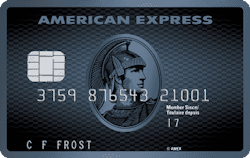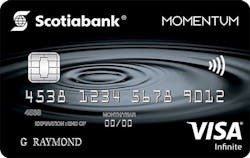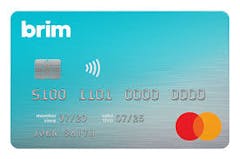Popular credit cards right now
Networks vs. Issuers
There are two parties involved in the distribution and use of credit cards in Canada:
- Credit card networks
- Credit card issuers
The credit card network provides the communication infrastructure necessary for transactions to take place. However, credit card networks do not issue credit cards.
The card issuer provides the credit card to the consumer. Card issuers establish credit limits, annual fees and rewards. They also manage application processes and collect payments. Typically, credit card issuers in Canada are banks or credit unions.
Credit Card Networks in Canada
There are three major Canadian credit card networks. These networks include:
- Visa
- Mastercard
- American Express
Canadian Credit Card Issuers
There are many credit card issuers in Canada, including the big five banks.
- Royal Bank of Canada (RBC)
- Toronto-Dominion Bank (TD)
- Bank of Nova Scotia (Scotiabank)
- Bank of Montreal (BMO)
- Canadian Imperial Bank of Commerce (CIBC)
While most organizations only act as a network or an issuer, some companies may function as both.
Here are some examples:
- Mastercard - network only
- TD Canada Trust - issuer only
- American Express - network and issuer
Why Trust Us as Your Go-To Experts on Canadian Credit Cards?
Our team has sifted through endless documents and consulted numerous reliable sources to bring you the most trustworthy and up-to-date information.
We’re also credit card users ourselves. If we have a bad experience with a card network or issuer - we’ll let you know. If we hear anything negative about a particular credit card - you’ll be the first in the loop.
Using our research and personal experience, we’ve created a comprehensive list of the best credit cards in Canada. Our recommendations take into account:
- Interest rates
- Annual fees
- Benefits
- Eligibility requirements
Consider what is important to you and use our convenient list to compare credit cards.
A Brief Intro to Our Credit Card Canada Categories
Different credit card networks
What You Need to Know About Credit Cards
Understanding credit cards and how they work is important when choosing one.
What Is a Credit Card?
A credit card is a payment method that allows users to borrow money to pay for purchases.
To use this service, the cardholder agrees to pay the money back. The total amount charged to the card does not need to be paid each month. However, any outstanding charges are subject to interest.
Many people use credit cards because they provide a convenient payment option. Credit cards also allow users to make larger purchases, even when they don’t have the cash to do so.
Eligibility Requirements in Canada
To obtain a credit card in Canada, you must meet a minimum age requirement. Age requirements vary, depending on the province or territory you live in.
- British Columbia - 19+
- Alberta - 18+
- Saskatchewan - 19+
- Manitoba - 18+
- Ontario - 18+
- Quebec - 18+
- New Brunswick - 19+
- Nova Scotia - 19+
- Prince Edward Island - 18+
- Newfoundland and Labrador - 19+
- Nunavut - 19+
- Northwest Territories - 19+
- Yukon - 19+
Some credit cards also require a minimum annual income.
Be sure to pay attention to these requirements when applying to avoid being denied approval.
How to Apply for a Credit Card
Choose a card
First things first, you’ll want to choose a credit card that is perfect for your lifestyle and spending habits. Do you travel often? You might want to consider a credit card that offers travel perks like airport lounge access or no foreign exchange fees. Do you spend a lot of money on groceries and gas? Consider a cash back card that offers high cash back rates for these purchase categories.
Use our helpful and reliable Canadian credit card guide to compare credit cards and choose the one that’s right for you.
Complete the issuer’s application process.
For fast and easy application, most credit card issuers will allow you to apply online. The application shouldn’t take you more than five to ten minutes. Simply fill out all of the required details, hit submit and you’re on your way to receiving a new credit card!
Await approval
After you’ve submitted your application, the credit card issuer will review your financial background and current financial position. Based on this information, they will either approve or deny your application. On average, the approval process takes about five to ten business days. However, some credit cards may offer approval within minutes.
If you’re approved, the card issuer will contact you with further details and send you your new credit card in the mail! They will also provide you with an initial maximum credit limit. This limit may be increased over time, with your permission.
You should receive your credit card in the mail within a week or two. Once you receive your card, activate it using the issuer’s instructions. Typically, this can be done online or over the phone.
Please Note: You can also be conditionally approved for a credit card. In this case, the issuer will require you to submit additional documents to demonstrate your financial position.
Cash Advances
Credit cards also allow you to take out cash advances. This can be cash withdrawn from an ATM or cash from a financial institution.
With a cash advance, interest is charged immediately and accumulates until the advance is paid off.
It’s important to note that most credit cards in Canada charge a much higher interest rate for cash advances than for regular purchases.
Other fees may also accompany a cash advance. Be aware of the fine print.
If you know you’ll be using your credit card for cash advances, be sure to choose an option that offers low interest rates and minimal extra fees.
Credit Limits
Normally, your credit limit will start low and will increase over time. As you prove to your lender that you can accumulate a balance and pay it off in a timely manner, they will offer you a higher limit.
That being said, your limit cannot be increased without your consent. A limit increase must be a mutual agreement between you and your credit card issuer.
If you’re planning to use your credit card for larger purchases, such as travel, be sure to choose a card that offers a suitable limit. For example, a credit limit of $1,000 may not be enough to cover the cost of flights, hotels and food. For travel, a $5,000 limit may be more suitable.
Credit Card Payments
Once you start making purchases with your credit card, you’ll want to make sure that you pay down the total as much as possible each month. This will help you avoid high interest rates.
It’s also important that you always make the minimum monthly payment. Failing to do so may hurt your credit score.
Keep in mind that you should only hold a balance that is less than approximately 75% of your total approved limit. Why? If you exceed this amount for an extended period it can also negatively affect your credit rating.
Luckily, making credit card payments is easy. Depending on your credit card issuer, you’ll be able to make payments:
- Online
- Over the phone
- In-person
Understanding Interest Rates
You will accrue interest on your credit card if you fail to pay off the balance each month.
Want to know how much you’ll be paying? You can calculate this interest by:
- Dividing your annual interest rate by 365 (days) - this gives you a daily interest rate.
- Multiplying your unpaid balance by your daily interest rate.
Here’s an example:
You have made purchases throughout the month and have a balance of $1,000 on your credit card.
Your annual interest rate is 19.95% (i.e. 0.1995).
Your daily interest rate is (0.1995 / 365 days) = 0.00055 (or 0.055%) / day.
Therefore, you’ll pay roughly $0.55 per day in interest on your $1,000 balance if you don’t pay it off by the due date (0.00055 x $1,000).
Let’s say you pay off $900 of your balance and have $100 remaining. In this case, you’ll pay approximately $0.05 per day in interest on the $100 unpaid balance (0.00055 x $100).
You can avoid interest fees by paying off your credit card in full each month.
Paying the minimum amount will prevent you from paying any additional fees and keep your credit report in good standing. However, it won’t prevent you from paying interest on the balance left unpaid.
In Canada, financial institutions that are regulated by the government must give users at least 21 days to pay off their credit card debt, without charging interest.
Other Credit Card Fees
Aside from interest fees, credit cards in Canada may also come with other fees that you should be aware of.
Some reasons you might be charged extra fees on your credit card include:
- Payment to your credit card issuer doesn’t go through due to non-sufficient funds
- You spend over your credit limit
- You allow your account to remain inactive for a year or more
Advantages of Credit Cards
Having a credit card has many advantages. Some benefits include:
- Cash back and rewards - most credit cards include a cash back or points program that allows you to earn while you spend.
- Convenience - a credit card allows you to borrow money so you can make purchases even when you don’t have the cash up front.
- Credit rating - using a credit card and making regular payments helps you build your credit rating. This can be useful when applying for a loan, line of credit or mortgage.
- Fraud protection - credit card companies protect their customers from illegal and fraudulent activity. The customer is never held accountable for costs incurred due to a stolen credit card number. This makes a credit card a great option for online purchases.
- Reservations and travel - many hotels, car rental companies, and even restaurants require a credit card on file to make a reservation.











